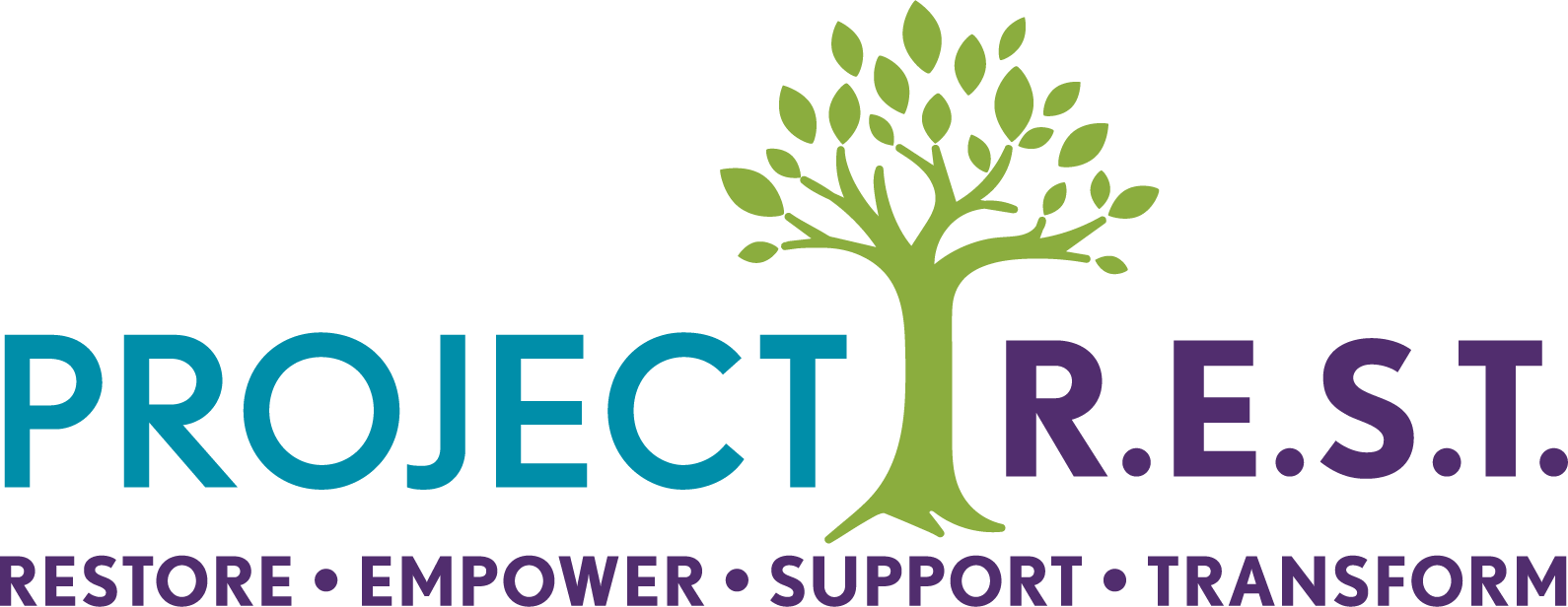SERVICES
We Provide
- A 24-hour crisis line.
- Assistance to domestic violence victims in Spartanburg, Cherokee, and Union Counties.
- Assistance to sexual assault victims in Spartanburg and Cherokee Counties.
- Up to 60 days+ of emergency shelter for victims of domestic violence and their dependent children including: food, clothing, transportation, limited daycare, and tutoring.
- Hospital accompaniment and advocacy for sexual assault victims during the medical/legal protocol.
- Police and court accompaniment and advocacy.
- Crisis counseling.
- Individual and Family Psychotherapy.
- Case management and follow-up.
- Information on employment, housing, financial aid, budgeting, child support, legal, medical, and social problems.
- Community support/psychotherapy groups for adults and children.
- Assistance in completing Order of Protection petitions.
- Primary Prevention and community education about domestic violence and sexual assault.
- Training for law enforcement, medical personnel, social services agencies, and other professionals.
Project R.E.S.T. provides a 24-hour hotline for domestic and sexual assault survivors seeking support, resources, hospital accompaniment, and/or shelter. The hotline can be reached locally by calling (864) 583-9803 or toll-free for Cherokee & Union County residents @ (800) 273-5066.
Our 24-hour services are available to anyone who has been affected by domestic or sexual violence. We counsel those who need immediate assistance, are working to heal, friends or family of victims and survivors as well as anyone in the community who has questions about these issues.
Your safety is our priority, so all phone calls are completely confidential and our advocates are specially trained to offer support. You can reach our hotline 24/7/365 days and are free of charge.
We Provide
- A 24-hour crisis line.
- Assistance to domestic violence victims in Spartanburg, Cherokee, and Union Counties.
- Assistance to sexual assault victims in Spartanburg and Cherokee Counties.
- Up to 60 days+ of emergency shelter for victims of domestic violence and their dependent children including: food, clothing, transportation, limited daycare, and tutoring.
- Hospital accompaniment and advocacy for sexual assault victims during the medical/legal protocol.
- Police and court accompaniment and advocacy.
- Crisis counseling.
- Individual and Family Psychotherapy.
- Case management and follow-up.
- Information on employment, housing, financial aid, budgeting, child support, legal, medical, and social problems.
- Community support/psychotherapy groups for adults and children.
- Assistance in completing Order of Protection petitions.
- Our Spartanburg County Office is open Monday through Friday from 8:30 am – 5:00 pm and is located on the 3rd floor of the Spartanburg County Courthouse.
- Our Cherokee County Office is Open Monday through Friday 8:30 am – 5:00 pm – located at 1612 North Limestone Street, Gaffney, SC.
- Our Union County Office is Open Monday through Friday from 8:00 am – 4:30 pm and is located at Union County Carnegie Library – 300 E South Street, Union, SC.
- Primary Prevention and community education about domestic violence and sexual assault.
- Training for law enforcement, medical personnel, social services agencies, and other professionals.
24-Hour Hotline
Project R.E.S.T. provides a 24-hour hotline for domestic and sexual assault survivors seeking support, resources, hospital accompaniment, and/or shelter. The hotline can be reached locally by calling (864) 583-9803 or toll-free for Cherokee & Union County residents @ (800) 273-5066.
Our 24-hour services are available to anyone who has been affected by domestic or sexual violence. We counsel those who need immediate assistance, are working to heal, friends or family of victims and survivors as well as anyone in the community who has questions about these issues.
Your safety is our priority, so all phone calls are completely confidential and our advocates are specially trained to offer support. You can reach our hotline 24/7/365 days and are free of charge.
Shelter
Project R.E.S.T. provides temporary emergency shelter for victims of domestic violence and their dependent children for up to 60+ days. We offer individualized services to each adult and child who seeks shelter from us, including legal advocacy, individual and group therapy, and a peer support group.
In order to qualify for placement, the person must:
- Reside in Spartanburg, Cherokee, or Union County
- Have been physically abused or threatened with physical abuse with a past history of physical abuse by a spouse, a common law spouse, an ex-spouse, or a live-in partner.
- Have lived with the abuser at some time
- Must be in danger of further abuse
- At least 18 years old or older
Additional guidelines:
- A resident must be able to care for themselves and their dependent children.
- A resident must be able to participate in individual and group activities.
- A resident must be able to live in a communal setting.
- A resident must be able to emotionally function in the shelter setting.
- A resident must be able to follow house rules, participate in shelter contributions “chores” and adhere to shelter safe hours “curfew”.
- The victim must directly request shelter placement on their own.
Sexual Assault Hospital Accompaniment
Project REST Advocates are available 24/7 to accompany survivors who seek medical treatment and forensic evidence collection after an SA at emergency rooms in Spartanburg and Cherokee Counties.
After a sexual assault, it is important to seek medical care to check for and treat any injuries, and also to receive testing and prevention medication for STIs and pregnancy. You can also choose to receive a Medical Forensic Exam (also known as Sexual Assault Kit). You do not have to have forensic evidence collected to receive trauma-informed medical care and prevention medication after an assault.
Survivors who present at the emergency room will typically receive the following services:
Read More
If it has been less than 96 hours since the sexual assault, a survivor can decide to get a forensic exam at any Emergency Room in Spartanburg and Cherokee Counties. The two purposes of a forensic exam is to (1) check for and treat injuries and (2) collect DNA-related evidence. Forensic exams vary based on the age of the victim, the length of time since the assault, and the type of assault. It is best to get a forensic exam done as soon as possible after an assault to ensure that the most evidence possible is present. A forensic exam typically includes:
- An interview that asks for information about the assault and your medical history.
- A medical examination to document and treat any injuries present. This may include a pelvic or anal exam depending on the assault.
- Collection of evidence for a law enforcement investigation, commonly known as a rape kit.
- Medications to prevent sexually transmitted infections and/or pregnancy as a result of the assault.
You can choose to report the incident to law enforcement while at the hospital, or (if you are 18 yrs. and older) you can opt for an anonymous exam. An anonymous exam is when evidence is collected but no report to law enforcement is made; it will then be stored for up to one year to give the survivor time to decide whether to report the assault to law enforcement.
The cost of the forensic exam is covered by SC special crime victim funds, regardless of whether the survivor chooses to report the assault to law enforcement or not. The Department of Crime Victims Compensation (DCVC) also offers a compensation program for other medical expenses related to the assault.
When a victim comes to the hospital for a forensic exam, a trained volunteer/advocate from Project R.E.S.T. is called by the hospital. The advocate can provide information and emotional support during the survivor’s time at the hospital and answer common questions about legal and medical processes. Advocates will also provide clothing to the victim if their clothes were taken for evidence collection and connect the survivor to follow up services and other resources.
Clinical Services
Our clinical services address trauma symptoms of recent DV and/or SA. We offer brief individual therapy, up to 20 sessions. Survivors wishing to continue in therapy may be referred by their therapist to one of our therapy groups or to one of our partnering community clinicians. Survivors seeking therapy for complex trauma and chronic/severe mental health disorders will also be referred.
- All Project R.E.S.T. Clinical services are FREE
- Trauma-focused psychotherapy for survivors of domestic and sexual violence
- Individual, family, and group psychotherapy for adults and children
- Variety of treatment interventions including EMDR, Brain-Spotting, CBT, CPT, TIR, TF-CBT, Play Therapy, Yoga for Trauma, and Art and Writing
- Interpreter or signer available through LUNA
- Teletherapy sessions via secure Doxy.me online platform at home or one of our offices

What is Group Psychotherapy?
In group therapy, there are usually about 3-8 members who meet with a trained therapist to find support and learn skills to work through their trauma. Therapy group provides an opportunity to process trauma-related thoughts and feelings in a safe environment with other survivors who have gone through similar experiences and understand each other’s struggles. Group members are never asked to share graphic memories or details of their trauma – the focus is on healing symptoms of distress. Depending on the type of group, members may engage in creative expression through art or writing, do active physical body work to release stress, and or learn skills for mindfulness, self-soothing, assertive communication, healthy relationships, and self-esteem.
Clinical Services for Children and Adolescents include:
- Trauma Assessments
- Individual and Family Therapy
- Activity-oriented, Trauma-focused Support Groups
We primarily see children on referral from DSS and/or the Child Advocacy Center (CAC). If a child has been directly abused, they must go through the CAC before we can do therapy with them. Minors aged 16-17 cannot be required to participate in therapy as they have the legal right to choose treatment or not, and they must sign their own consent if they want therapy. Please be advised that our clinical staff are mandated by law to report suspected child abuse.
If you are interested in clinical services for yourself or your minor child/ren, please contact our Clinical Director at 864-583-9803 or ask your advocate to make a referral.
Multilingual Access
Project R.E.S.T. will not turn away a victim of domestic violence or sexual assault because of language barriers. We have various staff and volunteers who assist us to ensure that language and culturally appropriate services are provided in your native language.
Para conocer más acerca de Project R.E.S.T. y los servicios que brindamos a víctimas de violencia doméstica y de abuso sexual, oprima Project R.E.S.T. en español. Este enlace contiene una serie de videos informativos en español que le ayudará a conocer acerca de nuestros servicios.
Advocacy Services
Project R.E.S.T. victim advocates assist victims of domestic violence in Spartanburg, Cherokee, and Union Counties and victims of sexual assault in Spartanburg and Cherokee Counties.
Our Advocates provide victims of domestic violence and/or sexual assault with crisis intervention, safety planning, shelter placement, needs assessment, and accompaniment to interviews with Law Enforcement, Family Court hearings, General Sessions, and Bond hearings. In addition, Project R.E.S.T. advocates can provide victims with technical assistance to complete and file for an Order of Protections.
Court Advocacy and Legal Advocacy Services
When a victim escapes their abusive partner, their priority is their personal safety and the safety of their children. This often requires court intervention by seeking an Order of Protection.
An Order of Protection is a type of civil restraining order filed in Family Court (or sometimes in Magistrate Court). The purpose is to protect the victim from abuse by an intimate partner. Victims of Domestic Violence often find themselves having to file a Petition for an Order of Protection without the assistance of an attorney. Project R.E.S.T. Victim Advocates can provide victims with technical assistance to complete the Order of Protection Court forms. Since Advocates are not licensed attorneys, Project R.E.S.T. provides the victims with a free legal consultation with a SC licensed attorney. The attorney will review the court documents drafted by the client, with the assistance of the advocate, and will also provide the client with legal advice regarding the order of protection process and other civil legal matters.
Due to limited funding, Project R.E.S.T. cannot provide victims with court representation at the Order of Protection hearing. If the victim wishes to have an attorney present, the victim can hire an attorney or apply for free civil legal assistance with South Carolina Legal Services.
If you need technical assistance with filing for an Order Protection in Spartanburg, Union, or Cherokee County, please call Project R.E.S.T. 24-hour crisis line at 864 583-9803. You can also stop by any of our offices:
Spartanburg County Residents: M-F/8:30am-4:45pm @ Spartanburg County Courthouse-3rd Floor @ 180 Magnolia Street, Spartanburg
Cherokee County Residents: M-F/8:30am-5:00pm @ 1612 North Limestone Street, Gaffney, SC
Union County Residents: M-F/8:30am-5:00pm @ 300 E. South Street, Union, SC
For more information about order of protections, please refer to the South Carolina Legal Services Self Help Order of Protection Forms.




